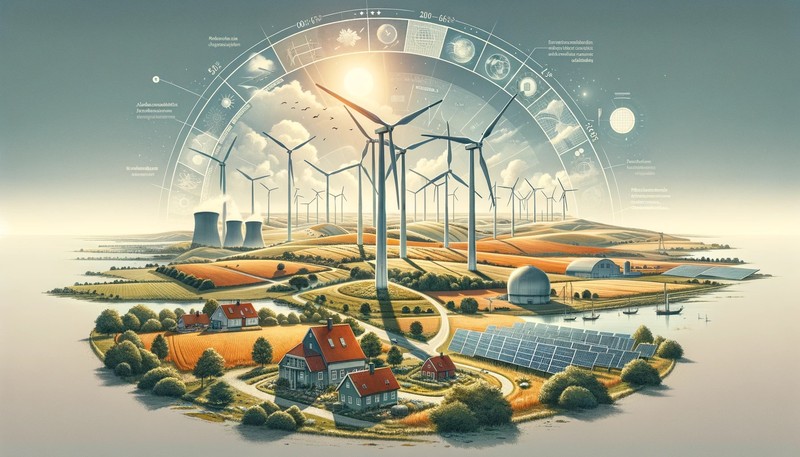Understanding the DK1 electricity market in western Denmark
Overview of DK1: Denmark's western electricity price zone
Denmark's electricity infrastructure is distinctly structured into two primary price zones. The first of these, known as DK1, encompasses the western region of Denmark. This zone extends to the western side of the Storebælt Bridge, a significant demarcation in the country's energy landscape.
Aarhus, celebrated as Denmark's second-largest city, lies within this zone. It is not just a cultural hub but also a key player in the region's energy consumption and management. The delineation of DK1 underscores the unique energy requirements and consumption patterns of Western Denmark.
Smart meter implementation in Danish households
Denmark has been at the forefront in embracing smart energy solutions. This is evident from the country's compliance with European Union directives, particularly in the universal adoption of smart meters. Across Denmark, including DK1, every household is equipped with these advanced meters.
These smart meters perform hourly readings of electricity usage, introducing a new level of efficiency in energy consumption and billing. They are essential tools that aid residents in monitoring and managing their energy usage, aligning with the country's commitment to sustainable energy practices.

Linkage to hourly spot prices
A unique aspect of the Danish electricity market, and particularly of DK1, is the integration of these smart meters with dynamic pricing models. Many households in this region have their electricity plans tied to the current spot prices. These prices, known for their hourly fluctuations, are displayed on this page.
Such a pricing mechanism offers transparency and enables consumers to make informed decisions about their energy usage. It also reflects the dynamic nature of the electricity market in DK1, where prices are continually adjusted to match supply and demand in real-time.
Energy mix in DK1
The DK1 zone is distinguished by its unique energy mix. While Denmark is globally recognized for its leadership in renewable energy, the western part, covered by DK1, has its specific energy profile.
This region benefits from a combination of traditional and renewable energy sources. The balance between these sources is continuously optimized to meet the regional demands while adhering to Denmark's ambitious environmental goals.
In DK1, renewable energy sources, particularly wind and solar power, play a significant role. This is in line with Denmark's national strategy to transition towards more sustainable energy systems. The region's commitment to renewable energy not only supports environmental objectives but also contributes to a more resilient and flexible energy grid.
Integration with the EU electricity market
Denmark, and by extension, the DK1 zone, is an integral part of the European Union's electricity market. This integration facilitates cross-border energy trade and enhances the stability and efficiency of the energy supply in DK1.
The interconnected nature of the EU electricity market allows DK1 to balance its energy mix, taking advantage of both domestic and imported energy sources. This not only ensures a steady supply of electricity but also contributes to the overall sustainability and competitiveness of the energy market in Western Denmark.
